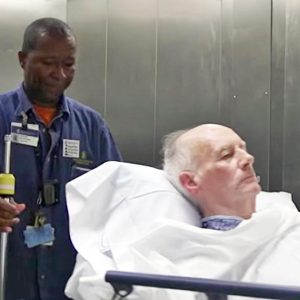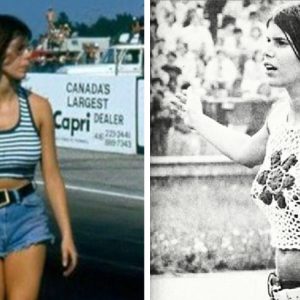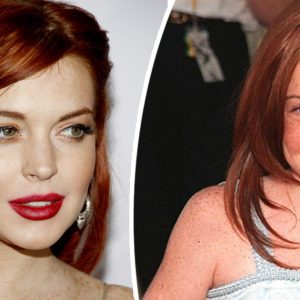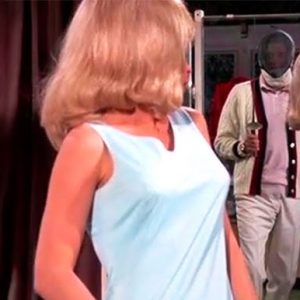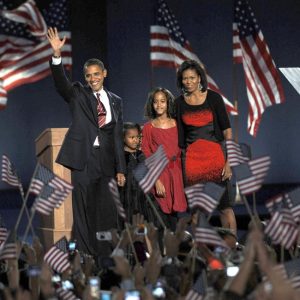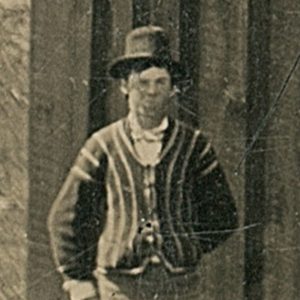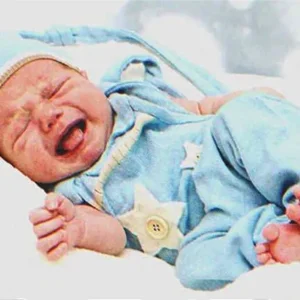Lee Majors has been a pivotal figure in the film and television industry since the 1960s. He is best known as an actor in features like “The Big Valley,” “The Fall Guy,” and, most notably, in “The Six Million Dollar Man.” However, Majors has starred in plenty of other works that fall under the action-adventure genre and has also showcased more of his range in other projects.
Despite suffering from heartbreak and having to overcome plenty of obstacles throughout his life, Majors has never given up on his goals and aspirations. The star has persisted throughout the years, even as he got older, and continued to find work for himself in the field of his dreams. He had originally hoped to become an athlete or an athletic coach, but fate had other plans in store for Majors, and he changed careers in the direction toward acting.
Majors worked as a stuntman and picked up small roles in television shows along the way before hitting his big break and making acting a full-time job and a long-lasting career. The man quickly became an action star as he continued to land more and more jobs. By taking on roles in other projects, Majors was later able to show off more of his personality and other talents, like singing and voice work.
Even though he has faced many challenges along the way, Majors never stopped working hard toward reaching his goals. He’s been a prominent figure in the entertainment industry for well over 50 years and looks just as stunningly handsome as he did when he was in “The Six Million Dollar Man.”
Early Struggles

Majors was born as Harvey Lee Yeary on Apr. 23, 1939, in Wyandotte, Michigan, a suburb of Detroit. He faced hardships early on and had to quickly learn a lot about the grieving process when both of his parents were killed in separate accidents before he was even two years old. His father died in a work accident before he was born, and his mother died in a car accident around the time he was 16 months old. Majors’ aunt and uncle, Mildred and Harvey Yeary, adopted him when he turned 2, and he moved in with them in their home in Middlesboro, Kentucky.
Majors showed promise early on as he participated in many school activities and was a great student. He played football and ran track at Middlesboro High School before graduating in 1957 with a scholarship to Indiana University. Despite this, Majors decided to switch schools and transferred to Eastern Kentucky University in Richmond, Kentucky, in 1959.
Once again, the up-and-coming athlete was faced with tragedy when he suffered a back injury while playing football that left him completely paralyzed for two weeks, ending his hopes at an athletic career. This injury is what led Majors to look for other hobbies, and he was bit by the acting bug. He began performing in plays at the Pioneer Playhouse in Danville, Kentucky, while still working on his education. He graduated from college in 1962 with a dual degree in history and physical education, with the aspiration that he would one day be a football coach.
From Athlete To Actor

It seemed like everything was running smoothly for Majors as he was able to get his athleticism back after recovering from his severe injury. He received an offer to try out for the St. Louis Cardinals football team but turned it down to move to Los Angeles, California. There, Majors was able to work as Recreation Director for the North Hollywood Park and met many influential people in the entertainment industry, such as actors and other industry professionals. Around this time is when Majors adopted his now-infamous stage name as a tribute to Johnny Majors, a player and future coach for the University of Tennessee.
Shortly after, Majors began working as an actor and landed his first role in “Strait-Jacket” in 1964. The role was unfortunately uncredited, but Majors persisted nonetheless. He kept auditioning and working to make acting a full-time gig and picked up a minor role in “Gunsmoke” in 1965 and a part in “The Alfred Hitchcock Hour.”
It wasn’t long before Majors finally found his stride and got his big break in the ABC western series “The Big Valley.” The show was an instant hit and helped Majors receive more praise and recognition as an actor. “I did an audition for ‘The Big Valley’ with about 500 other guys, and they narrowed it down so I did a screen test, as did Burt Reynolds, Roy Thinnes, Dennis Hopper, and then they married it down more,” Majors revealed in a 2015 interview with Den of Geek. “Then I had to do one more, and this time with a girl, a young actress to see if she could play my sister. After this I figured I had the part.”
His Leading Roles

Majors felt a strong connection to the character as it reminded him of the hardships he had to overcome early on in his childhood. “My real father was killed in the steel mills of Michigan when my mother was eight months pregnant with me; then my mother was killed when I was 16 months old, run over by a drunk driver on her way to work as a cleaning lady in a hospital,” he explained. “This is when I was shipped off to Kentucky, to some distant relatives, who raised me as my mom and dad. This instilled in me the reservation to make something of myself, the perseverance to tackle stuff and stay at it.”
Majors’ career was on fire as the star continued landing more and more jobs. He co-starred in “Will Penny” in 1968 and also played the lead role in “The Ballad of Andy Crocker” in 1969. He had continued working on “The Big Valley” until it was canceled in 1969. When one door closed, another one opened for Majors, and he signed a contract with Universal Studios shortly after his most popular show ended.
More opportunities presented themselves as time went by, and Majors was met with yet another show that would launch his career to new heights. In 1973, the actor was cast as the starring role in “The Six Million Dollar Man” as USAF Colonel Steve Austin, a former astronaut who had bionic implants. It was originally a television movie that aired on ABC, but the network expanded it and turned it into a weekly series the following year.
Continued Success

“The Six Million Dollar Man” was extremely successful and received widespread coverage and acclaim, as it reached audiences in over 70 countries. Although Majors had been in the industry for a few years prior to this point, the series was a turning point in his career and made him a pop icon. Majors had a few issues with Universal Television when he tried to renegotiate his contract due to the overwhelming success “The Six Million Dollar Man” brought, but everything eventually worked itself out once the show’s rating began declining, leading to it ultimately being canceled in 1978.
The actor had continued to work leading up to the 1980s when he was once again given the opportunity to star in a long-running television series. In 1981, Majors was given the leading role in “The Fall Guy,” and played the character of Colt Seavers, a Hollywood stuntman who moonlighted as a bounty hunter. The star made his presence more known than ever on the series as he also worked as a producer and director for the show. He even sang the theme song, showing off yet another talent of his. The series was widely successful and ran for five seasons.
Majors made a quick return to his character from “The Six Million Dollar Man” as he and Lindsay Wagner, one of the stars from “The Bionic Woman,” filmed three crossover movies together in the 1980s that highlighted both of their characters. Throughout the 1980s, Majors also starred in “The Last Chase” and “Starflight: The Plane That Couldn’t Land,” and made a cameo in “Scrooged.”
Searching For Love

Nothing could stand in the way of Majors reaching the highest level of success and his career easily continued throughout the 1990s and 200s. He took on new projects and was able to show more sides of himself through his work during this time. Majors lent his voice to the 2002 video game “Grand Theft Auto: Vice City” and also the animated children’s program “Wapos Bay: The Series.” Along with this, Majors also starred in “Ben 10: Race Against Time” and was even in a music video for “When We Die” by the band Bowling For Soup in 2007. One of his more long-lasting roles came from his part as Coach Ross on the CW’s “The Game,” which ran from 2006 until 2009.
Despite such a hectic schedule and lifestyle, Majors remarkably found time for love. He married Kathy Robinson in 1961 and had one child with her, appropriately named Lee Majors, Jr. His son later became an actor himself and even starred alongside Majors in three of the “Six Million Dollar/Bionic Woman” television movies. Majors and Robinson parted ways after a short marriage and divorced in 1964.
Not letting heartbreak stop him from finding his one true love, Majors continued looking for his match and married Farrah Fawcett on Jul. 28, 1973. Unfortunately, the two were not meant to be together and divorced a few years later, in February 1982. Although their marriage didn’t last, their relationship will live on as it inspired the song “Midnight Train to Georgia.” Even though the songwriter, Jim Weatherly, knew Fawcett and Majors, he used them more as muses for the characters in the classic tune. The song was later recorded by Gladys Knight & The Pips.
Reflecting On A Lifetime In The Spotlight

Seeing if three times is really the charm, Majors married Playboy Playmate Karen Velez in 1988. The couple had one daughter, Nikki, and two sons, Dane and Trey, together before they divorced in 1994.
During an interview with Den of Geek in November 2015, Majors reflected on his early days, his long career, and some of the most critical roles he played over the years. “Sometimes I think fondly of it, then a lot of times I think, ‘Boy, that was a lot of hard work. They ran my butt off,'” Majors said. “I did probably 85% of my own stunt work, and so today I think I’m getting close to a knee replacement, it’s giving me a little trouble.”
Despite the notion that his physical capabilities were not what they once were, Majors was in good spirits as he reminisced on the fact that he starred in many memorable roles back to back. “Back in that day there were at least 18 or 19 western series on the air, and of course, we only had three networks,” Majors explained. “But it was very competitive.”
Despite being an action star and stuntman, Majors was focused on making sure he portrayed family-orientated characters on family-friendly shows. “Most of my shows and the series I did were family oriented,” he said. “Everybody would come and gather round ‘Six Mill,’ anybody could watch the show. The same was true of ‘ Fall Guy’ and of ‘Big Valley.’ There wasn’t ever a lot of bloodshed, none of the explosions you have in movies today, the blood and guts and stuff.”
See Lee Majors Today

Majors’ personal life was reflected in the shows he worked on. “I was raised going to church in Kentucky… that’s just the way we were brought up,” he said. “Had to go to church on Sunday.” From humble beginnings to challenging obstacles to stardom, Majors persisted. He had some rough patches throughout his extremely successful life, but the actor never let anything stop him. Majors had some advice for aspiring actors that showcases his determined mindset and willingness to never give up. “Once you get your foot in the door, don’t let it slam on you,” he said.
Although the roles were usually smaller or just guest appearances, Majors continued to work throughout the late 2000s and throughout the 2010s. He reprised his role as Steve Austin once again, but this time just as a voice actor for the part in a 2009 episode of “Robot Chicken.” Majors picked up a small recurring role in “Raising Hope,” and was featured in three episodes over the course of three years. One of his most recent jobs was as the voice of Jeff Tracy in “Thunderbirds Are Go” in 2019.
Majors was seen as an action hero and was loved by many due to his charming looks, undeniable talents, and kindness. The actor, now 85, looks just as amazing as ever and is still a household name. He is currently married to actress and model Faith Cross, as the two tied the knot on Nov. 1, 2002, and have been happily married ever since. Majors has done it all and has stayed true to himself along the way while still capturing the hearts of many even as his career has slowed down.


What do you think of Lee Majors today? Let us know, and be sure to send this to your family and friends to find out their thoughts, too!
